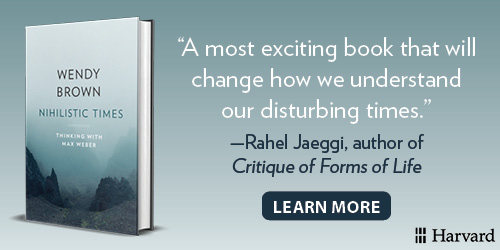Mini-Heap
Recent links…

- “All levels of the criminal justice system… are structured by entrenched institutional racism that inflicts a form of terrorism and torture on Black Americans and people of color” — Jessica Wolfendale (Case Western) has a message for a UN group on race and law enforcement currently visiting the US
- From a Sikh ethical perspective, “certain errors in rationality are themselves rooted in a kind of self-indulgence” — Keshav Singh (Alabama, Birmingham) is interviewed by Spencer Case (Colorado) on Sikh religion and philosophy
- Philosophy, policy, and knowledge about addiction — a new blog by and for addicts (via Michelle Ciurria)
- “There’s no need to reject how biologists define the sexes to defend the view that trans women are women” — Paul Griffiths (Sydney) on the importance and limitations of biological sex
- “A lottery system for the most prized places in higher education would underscore a basic, if often ignored, fact about American life: chance rules us all” — the case for lottery-based admissions to universities
- “Adventure of a Young Hero” is a new entertainment franchise based on the childhood of neo-Confucian philosopher Wang Yangming — it will include movies, novels, comics, musicals, youth forums on Wang’s philosophy, study tours, and more
- The new season of Hi-Phi Nation has begun — two episodes out so far: “The Digital Future of Grief” and “Living in a Zoopolis”
Discussion welcome.
Mini-Heap posts usually appear when 7 or so new items accumulate in the Heap of Links, a collection of items from around the web that may be of interest to philosophers.
The Heap of Links consists partly of suggestions from readers; if you find something online that you think would be of interest to the philosophical community, please send it in for consideration for the Heap. Thanks!



Why pick college admissions specifically? What about the non-college bound? Why not have a lottery for everyone? Perhaps, we could parcel out some all-purpose resource, like money, and give it away to winners?
Perhaps, there should be punishments.
“Like all men of Babylon, I have been proconsul; like them all, a slave; I have also known omnipotence, opprobrium, incarceration. Look: on my right hand is missing my index finger. Look: through this rent cape can be seen on my stomach a ruddy tattoo — it is the second symbol, Beth. On nights when the moon is full, this symbol confers unto me power over the men whose mark is Ghimel while rendering me subject to the men of Aleph, who on moonless nights must obey the men of Ghimel. In a cellar in the half-light of dawn, I have slit before a black altar the throats of sacred bulls. For an entire lunar year, I have been declared invisible: I would cry out and no one would respond, I would steal bread and I was not beheaded. I have known what the Greeks knew not: uncertainty.” Jorge Luis Borges/”The Lottery in Babylon”
Re: 1 at the Just Security Blog; that is why I first put together this compilation (it was updated not long ago): https://www.academia.edu/4844124/Punishment_and_Prison_bibliography_with_addendum_on_policing_in_the_U_S_
“Addicts are the people who are marked out for oppression in specific ways by the social, political, and economic forces that regulate, incentivize, and criminalize the pursuit and possession of controlled substances and processes.” I think that sentence (especially the first or main clause) is nonsense, unless perhaps, one is a pure-bred “situationist” and more interested in excusing and rationalizing addiction than strategies to overcome it. There are of course myriad problems and contradictions with the way we deal with—“incentivize and criminalize”—drugs, both legal and illegal and, like everything else in this country, the treatment of addicts has to a large extent become a profit-making enterprise (and non-profit institutions can have the flavor of an ‘addiction bureaucracy’), at least for those who can afford it. And no one should deny that socio-economic circumstances can be conducive to those looking for escape or relief from their suffering in routine drug use (bored rich people can become addicts as well), or they are comparatively punished for drug use all out of proportion to their counterparts in the middle and upper classes or who are white.
I have personally known different kinds of addicts, and am well acquainted with alcoholism, which is an insidious addiction (and thus not a ‘disease’ as some still argue). I have been studying addiction for many years (and have a bibliography on same) and addicts are often in fact part of or deeply involved in the various treatment strategies, be they institutional, therapeutic, or personal, and I do not believe either addicts or those who “treat” or help them should always and everywhere have epistemic privilege (as for the ‘testimony’ of addicts, it is not hard to find should one look for it), but those with the requisite knowledge, experience, and expertise are capable of providing epistemic, psychological, and ethical perspectives and insights not typically found among addicts, at least in the earliest and most arduous stages of treatment. I thus cringe when reading that we should be “celebrating addict experience and identity, and generally describing things from the addict standpoint.” Let’s not forget that more than a few people involved in the treatment of addiction have themselves been addicts or intimately know family members or friends who have struggled or died from addiction. Addicts alone, at least in many cases, should not be “in charge” of their treatment regimen any more than psychotics or schizophrenics should be in charge of attempts to transcend their mental illness. This in no way precludes recognition of the moral and political agency of addicts, or acknowledgment and affirmation of their dignity, or the necessity of efforts to facilitate or encourage their individuation and self-realization. It seems this “collective” and its blog have or entertain objectives, aims, and strategies that will be inclined (if not designed) to attract those with social and political views and backgrounds identical or similar to the two persons who wrote this manifesto-like introduction (please don’t infer from this that I am opposed to manifestos!). Perhaps I am mistaken. I wish the authors well.
Hi there. Thanks for your comment.
The orientation of the blog is toward philosophy of disability and social philosophy, in which endeavors such as feminist standpoint epistemology are central. The definition of addiction we propose is ameliorative (cf. similar efforts by Haslanger). In light of that commitment, you and I probably disagree on a great many philosophical particulars. (Although to the extent that you or I are misinterpreting anything the other is saying, I am happy to discuss the project over the email listed at the site page!) So I won’t discuss that here.
What I do want to respond to is the concern about attracting people “with social and political views and backgrounds identical or similar” to those of the authors. Naturally we come at this topic from particular precommitments, and to do otherwise would underdetermine our objectives for establishing a project in the first place. However, the question of how to solicit, platform, and respect the writing of addicts who don’t agree with some or all of our particular understandings of addiction, politics, philosophy, etc. is very important to us. Indeed, one of our reasons for presenting a rather reductionist model of addiction is in order to promote pluralism. Disabled people aren’t a monolith, and disabled people with views that are uncommon within disability studies are often doubly disenfranchised. This is part of the reason we permit anonymous submission, perform outreach, and plan to host debates and discussions. I may personally be critical of certain narratives of addiction (as you can certainly see), but balancing these objectives is important to us and subject to ongoing revision and consideration.
We wish you well too.
-Virgil from AC
“but those with the requisite knowledge, experience, and expertise are capable of providing epistemic, psychological, and ethical perspectives and insights not typically found among addicts”
This is exactly the type of ableist rhetoric that AC subverts by legitimizing and creating space for feminist phenomenological ways of knowing, i.e. taking addict lived experience seriously and not undermining their capabilities or insights vis-a-vis their addiction. Part of this means advocating for the radical decentering of medical model narratives like the one enmeshed in your response.
The AC blog, as clearly stated in their mandate, is by and for addicts. If you can’t see the value in creating a space to center addict lived experience and take seriously addict testimony including calls for the radical dismantling of the authoritative medical model that subjugates, pathologizes, oppresses (and no doubt effectuates the death of) addicts then the blog probably isn’t for you. To denounce the blog’s articulation of addict oppression as “nonsense” or “useless”, however, undermines addict subjectivity and autonomy.
I wish I had the desire and energy to further debate the particulars (values, presuppositions, etc.) but I do not and perhaps one reason is that I suspect it will make no difference whatsoever to the respective and different views we hold on this subject. I will make a few brief points in reply and leave the rest to you and others who share your views: it is uncharitable and wrong-headed to assume, presume, or assert that many of the treatment modalities and people working with addicts in therapeutic settings do not take “addict lived experience seriously,” that they “undermin[e] their capabilities or insights vis-à-vis their addiction.” This suggests one has not seriously examined such matters in significant breadth and depth. The existing therapeutic space dedicated to helping those with addiction is rather pluralistic (for better and worse) on the ground and thus it simply is not true that there is one monolithic or “authoritative medical model that subjugates, pathologizes, oppresses (and no doubt effectuates the death of) addicts.” This claim effectively eliminates any notion of personal responsibility or even agency when it comes to the motley reasons people become and remain addicted. It is addiction which “undermines” a person’s subjectivity and (moral psychological) autonomy. To be more specific, “addiction-motivated behaviours tend to “undermine intentional agency over time but are compatible with voluntary individual actions” (thus allowing for ‘mitigation but not full excuse’), moreover, and generalizing once more, these behaviors tend to evidence “dereliction of normal (for us or them) social role obligations, because of spending so much time and resources obtaining the desired substance, and because of being in no fit state once they have.” The following books, in addition to my “lived experience,” have helped shape my views on these matters:
As for the collective and the blog, I have no objections whatsoever to people joining and participating even if we may have differing expectations or views about its utility or value. If some individuals benefit from such participation (e.g., gain insights or perspectives on their addiction so as to begin to overcome it) that is all to the good. Best wishes, P.